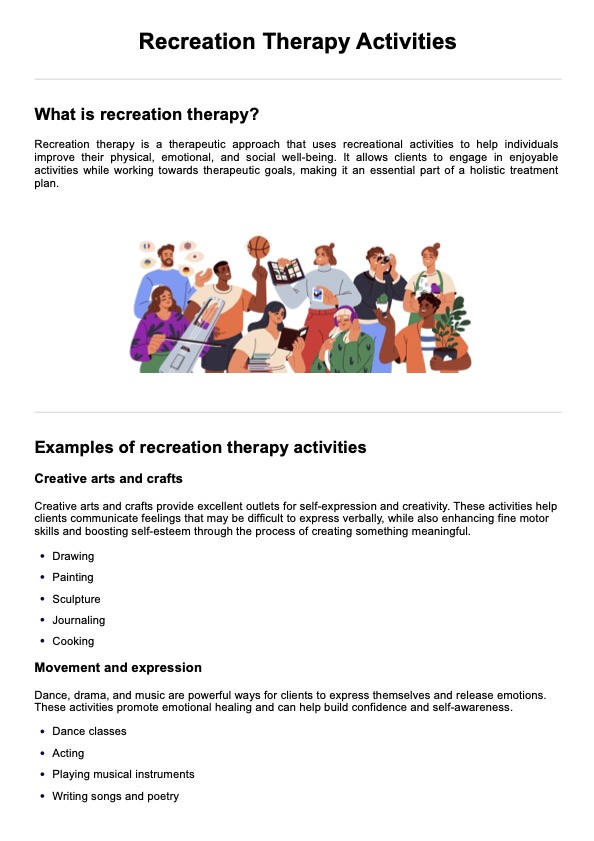Recreational therapy in skilled nursing facilities is crucial in improving residents' mental health and self-esteem. Residents can develop new skills, experience self-expression, and enhance their cognitive abilities by engaging in various leisure activities and social interactions. This systematic engagement in fun and meaningful activities uplifts their mood and boosts their confidence and self-worth.

Recreation Therapy Activities
Use our Recreation Therapy Activities handout and boost clients' well-being with activity ideas tailored to their needs! Download this for free.
Recreation Therapy Activities Template
Commonly asked questions
Yes, recreational therapy utilizes physical activities and sports as a form of treatment to tackle anxiety and stress. They are engaging in physical movement and sports leads to the release of endorphins, which are natural mood lifters. This form of therapy helps individuals develop coping skills, improve their physical health, and gain a sense of achievement, all of which contribute to reducing feelings of stress and anxiety.
Recreational therapy in a group setting is an effective way to enhance social skills. Through structured group activities and interventions, individuals are encouraged to interact, communicate, and cooperate with others. This social engagement provides a safe space for practicing and improving interpersonal skills, leading to increased social confidence and better relationship-building abilities.
EHR and practice management software
Get started for free
*No credit card required
Free
$0/usd
Unlimited clients
Telehealth
1GB of storage
Client portal text
Automated billing and online payments











